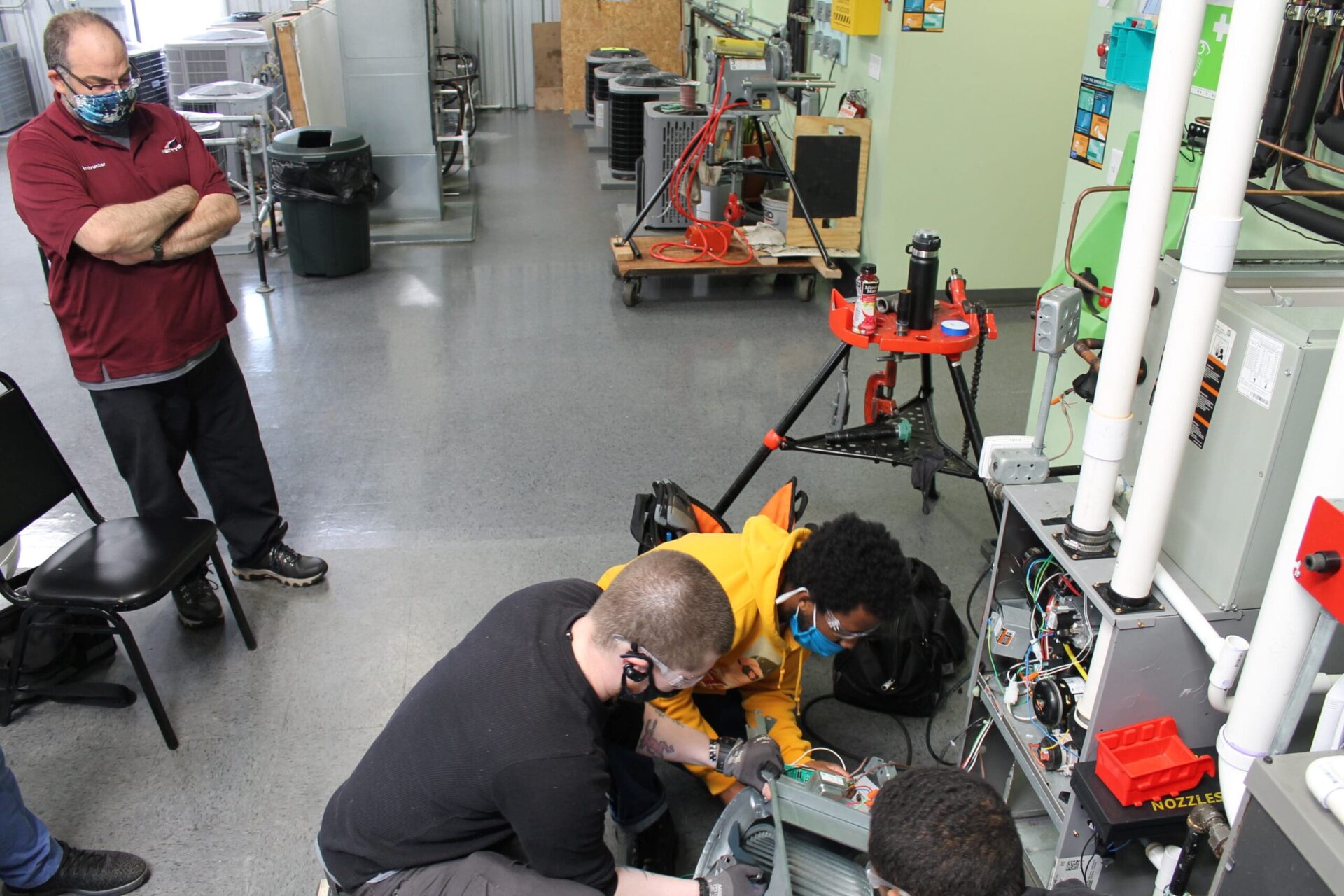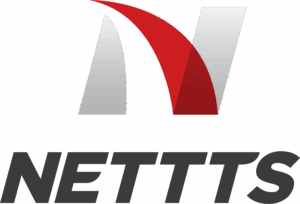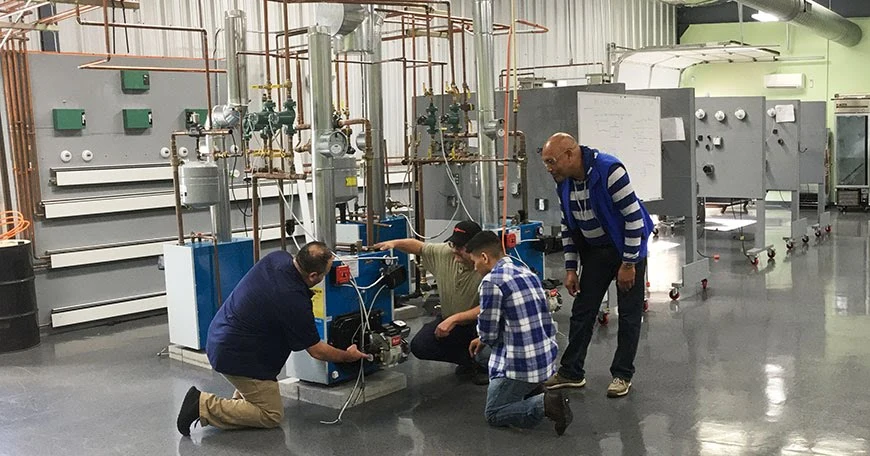
Is HVAC a Hard Trade to Learn?
HVACR (Heating, Ventilation, Air Conditioning, Refrigeration) is a hands-on profession in the skilled trades. The work of an HVAC professional may often be described as physical, creative, problem-solving, and hands-on. The HVACR trade touches many of the other skilled trades and can cross the skills of electrical, welding, plumbing, and other trades. Every day may be different and each service call can be unique. A tech may have to work in small, dark spaces or in a wide open commercial refrigerator. It may be hot for a technician fixing an air-conditioning unit in July or cold for one repairing a gas furnace in January. This is the life of an HVAC tech!
Is an HVAC Career A Good Choice?
There are many reasons why people choose career training in the HVAC field! They may be viewed as having a skill not many others could do. They may enjoy taking things apart and putting them back together. They are there to fix the things everyone else breaks! When HVAC technicians are out on a job, they are independent and there to solve a problem. When things go wrong with heating and cooling equipment, it is the HVACR Technicians who are there to restore comfort and save the day! Being in the HVAC field may bring pride and accomplishment. Whether you are building a system from scratch or repairing one that needs work, technicians are often appreciated by clients and customers.
What Does a Typical Day in HVAC Look Like?
HVACR is the short-hand term that stands for Heating, Ventilation, Air Conditioning, and Refrigeration. This means working on equipment like furnaces, air conditioners, boilers, heat pumps, refrigerators, coolers, freezers, humidifying units, air filtration systems, and much more. All of these units will need servicing, installing, troubleshooting, fixing—sometimes immediately—as people depend on these units for comfort in their everyday lives.
Commercial HVAC vs Residential HVAC
HVAC can be divided into commercial (business) and residential (household) categories. From there, HVAC technicians may choose to focus on HVAC service and/or installation. Residential means you work in houses, condos, or apartment buildings. Commercial means you work in office buildings, factories, stores, or warehouses.
What Is It Like Working in the HVAC Industry?
Working in HVAC can be challenging and rewarding! HVAC could be a nice option for those who don’t like to be in the same place day after day, as your work may find you at different locations troubleshooting different problems or installing different equipment. HVAC workers might have to be okay with small spaces (many boiler and fan units could be in tight quarters!), possibly hot (you could be fixing a broken AC unit!) and the work could be challenging.
Becoming a professional HVACR Technician can take patience and critical thinking as you may be installing or repairing all different types and brands of HVAC equipment. Some equipment could be cutting edge, and others from the turn of the last century. Each day is different and can present the chance to work with different equipment or solve unique problems. If you are not afraid to learn about mechanics, how to design new systems, computer-driven controls, and electricity, then HVAC could be the right choice for your future.
A professional HVAC technician may understand the electrical, plumbing and framing work that ties in to the HVAC work. He or she will understand how to read charts and blueprints of machinery and will also be able to think outside of the box, troubleshoot, use investigating skills, work backwards, and even rewire a whole system, if needed.
What Does a Typical Day in an HVAC Program Look Like?
Having the skills of an HVAC Technician, such as Air Conditioning or Refrigeration repair, or knowing the inner workings of boilers and other systems can take training, experience and possibly even certain certifications. New England Tractor Trailer Training School (NETTTS) offers an HVACR program that meets all the HVAC school requirements and delivers a curriculum taught by instructors who are experienced HVAC technicians in the industry.
If you are still curious about learning HVAC, give NETTTS a call! You can find out what the NETTTS career training in HVAC can offer and the experience and knowledge you will gain. NETTTS HVAC program is hands-on. Students first learn in the classroom, then go into the training labs to put that knowledge into practice. Our curriculum is designed for students with no prior HVACR experience, and we want to help you get started.
How To Get Your HVAC Tech Career Started With NETTTS
At NETTTS, we offer vocational training programs near you, such as CDL training and HVAC training. If you’re interested in learning HVAC skills, we want to talk to you! Take a few minutes to schedule a time to speak to a representative about our HVAC training school near you! Contact NETTTS today!





